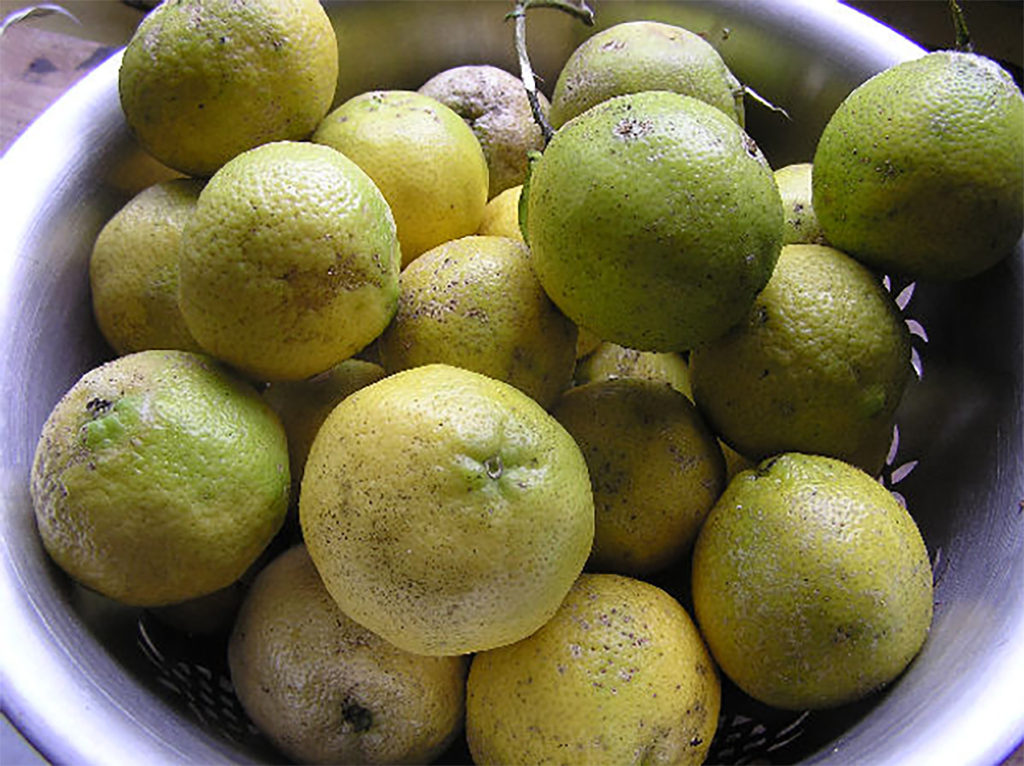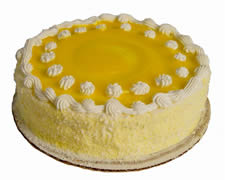by D. Leilehua Yuen
Pour yourself a glass of sweet tea and have a slice of Mama’s Lemon Icebox Cake, recipe below.
Now:
Please hear this in my very best “Church Lady” voice. “Oh, my sweet summer child, Game of Thrones did NOT coin ‘sweet summer child.’ GOT may have popularized it, but GOT did NOT create it.”
“Sweet summer child” already was old when my grandmother used it in the 1960s.
The Creole
1850, Mary Scrimzeour Furman Whitaker
Blue was the summer ah—, and mild
The fragrant breeze,— sweet Summer’s child.
All rob’d in white, dead Stanley seem’d,
And radiance, from his features, beam’d;—
Meta, companion of his way,—
Yet pale as when, on earth, he lay.
The West Wind
1849, James Staunton Babcock
Thy home is all around,
Sweet summer child of light and air,
Like God’s own presence, felt, ne’er found,
A Spirit everywhere!
Poems eulogizing children are found throughout newspapers of the 1880s. This one was used for at least two different children, including “Little May Tyng” and, in this case, attributed to Frances B. M. Brotherson in the Blount County Dispatch of Blountsville, Alabama. It seems to have been common practice to use such poems as a structure and then alter specifics to match the individual child’s circumstances.
Little Mary Tyng
1879, Frances B.M. Brotherson
God took her forever,
Our sweet summer child—
She passed through the valley
With Thee, Undefiled!
So trusting, so fondly
To Thee did she cling,
Thou wert the sure refuge—
Of little May Ting
 19 Mar 1879, Wed Blount County News-Dispatch (Blountsville, Alabama) Newspapers.com
19 Mar 1879, Wed Blount County News-Dispatch (Blountsville, Alabama) Newspapers.com
In that oh-so-Victorian poetry, the “sweet summer child” can refer to anything tender and summery—from a gentle breeze to an actual child.
So, how did such a tender sweet phrase develop its stinging backhand? Well, for that, let’s turn to my Nana. Born in 1900 in St. Louis, Missouri (properly pronounced “Muzurah,” I have been informed), she moved to Hawaiʻi as a young bride. When she packed her bags for the islands, a number of colloquialisms jumped in before she could get the latches fastened.
If you know anything about the ladies of that time and place, you know that they were strong proponents of “if you can’t say anything nice, don’t say anything at all.” Instead, they became masters of making a cut while using the nicest possible words. And, the same phrase can have many different meanings, depending on the skill with which it is deployed.
“Why, bless your heart” can mean anything from “thank you, that was so sweet of you,” to “how on earth did you come up with THAT?”
And so, “Oh, my sweet summer child” could be anything from a simple comment on the beauty and grace of a small child playing in the summer sun to a verbal head shake at unfathomable naïveté. It can refer to a very young child born in summer, a person with a summery disposition, or a person who has little to no experience of “winter:” hardship, trials, and tribulations, or just someone who is clueless as to anything that has happened before they came on the scene.
In the 60s and 70s, I frequently heard it in response to some bit of pre-teen or teen angst I expressed in my youthful confidence that in under two decades I had managed to acquire far more wisdom than had the totality of adults of my acquaintance. “You really think no one else has thought of that? Oh, my sweet summer child.”
So in honor of Summer Children everywhere, here is a recipe for Mama’s Lemon Icebox Cake. No, not my Mama’s Lemon Icebox Cake. HER Mama’s lemon Icebox Cake. It’s good. Try it. But first, make the lemon curd.

Lemon Curd
by Geraldine Duncann
What is Lemon Curd? It’s the yummy stuff in the middle of a lemon meringue pie. That’s about all Americans use it for. In England however, it is used like jam or preserves, being served with scones at tea time and eaten on toast or bread.
There are many recipes, some thickened with eggs only and others thickened with cornstarch only. The egg ones taste just too eggie for me and the cornstarch only aren’t rich enough. This recipe I feel is a perfect blend.
- 1 cup sugar
- ¼ cup cornstarch
- 1 ½ cups of cold water
- 3 egg yolks, lightly beaten
- Grated Zest of 1 lemon
- ¼ cup lemon juice
- 1 tablespoon butter
Combine the cornstarch and sugar in saucepan. Add the water and stir until smooth. Whisk in the egg yolks.Stirring constantly, bring to a boil over a medium heat and continue boiling for one minute. Remove from the heat. Whisk in the lemon juice, zest and butter. Allow to cool. This is wonderful used like any jam or jelly. It is also the base for many other elegant desserts.
Mama’s Lemon Icebox Cake
by Geraldine Duncann
Make 1, 8 to 9 Inch Round Cake
We had a lemon tree on the farm that seemed to have a plethora of lemons on it all year round. In our Southern California summers when the temperature inside the kitchen could be well over 100 degrees, Mama would stay up late at night after the kitchen had cooled and make this delectable and refreshing lemon cake for us to enjoy the next day. It was a lot easier for her to make once we got an electric refrigerator to replace the old ice box. You may use my Basic Lemon Cake (below) as the base, or a commercial cake mix. Make the various components in the early morning before it gets hot or in the evening after things cool down.
- 1, 2 layer lemon cake
- Juice of one or 2 lemons
- 1 cup lemon curd
- ½ pint whipping cream
- Thinly slivered curls of candied lemon peel if available
- Sprigs of fresh mint
Split the two layers of cake in half. Sprinkle the cut sides with lemon juice and set aside. Whip the cream to hold stiff peaks. Save about a cup of the whipped cream for garnish. Temper the lemon curd by gently folding about half a cup of whipping cream into it. Then, gently fold this lightened lemon curd back into the remaining whipped cream, (minus what will be used for garnish.) Place one of the split layers on a cake plate. Spread with the lemon curd, whipping cream mixture. Top with another split layer. Spread with cream. Continue until all the layers have been coated with the lemon cream. Do not frost the sides. Just let the cream ooze out between the layers. Refrigerate until ready to use. Just before serving, garnish with dollops of whipped cream, candied peel and sprigs of fresh mint. This is a delectable and refreshing dessert for those hot, hot summer days.
Basic Lemon Cake
by Geraldine Duncann
Makes 1, 8 to 9 inch 2 Layer Cake
This basic lemon cake is delicious on its own or as the beginning of many other desserts.
- 3 cups all-purpose flour
- 1 tablespoon baking powder
- 2 cups sugar
- 1 cup butter (2 sticks or ½ pound)
- 4 eggs
- ¼ cup lemon juice
- 1 teaspoon lemon zest
- 1 cup cold water
Pre heat the oven to 350°. Prepare 2 8 or 9 inch cake pans with non stick spray or by lining with bakers’ parchment. Sift flour and baking powder together and set aside. Blend the sugar and butter together until soft and fluffy. Add the eggs, one at a time, beat in well after each addition. Add the lemon juice and zest and mix well. Add the dry ingredients alternately with the water and mix well. Divide between the prepared cake pans and bake in the center of the oven for 30 to 35 minutes or until a slim skewer inserted in the center comes out clean. Remove from the oven and allow to cool on cake racks before removing from the pans.
Other phrases my Nana used:
Well, bless your heart
This useful phrase fills in for everything from a warm “thank you” to a frustrated hope to never have to deal with you and your willful incompetence again.
Well, bless your little punkin’ head
This is similar to “Well, bless your heart,” but you had to do something a several degrees more stupid to earn it.
It don’t/doesn’t amount to a hill of beans
Beans were cheap and abundant food in my Nana’s day, so if something did not amount to a hill of beans, it did not amount to much at all.
She’s blowin’ up a storm
The wind rises before a storm blows in, bringing with it a unique smell.
Got more of _______ than Dr. Carter’s got little liver pills
Dr. Carter was the inventor of his own brand of liver regulating pills. They were tiny round things, the size of the head of a quilting pin, and a whole bunch of them fit into a tiny little glass bottle.
Madder than a wet hen
Personally, I never noticed my hens any more mad when they were wet than when they were dry, but I grew up in Hawaiʻi and it rains a lot here. Maybe chickens in MO are less amenable to rain. I did know that when Nana said I was making her madder than a wet hen I should hush my mouth and head over yonder.
Hush your mouth
Be quiet.
Over yonder
A distant place, usually indicated by pointing with the chin and/or eyebrows.
ʻTil the cows come home
All day, or a very long time. The cows come home in the evening at feeding time.
Pretty as a peach
Fresh and plump, appealing looking.
Full as a tick / Swoll as a tick
Ate so much you can’t eat any more. “Swoll as a tick” is the same, but not as polite, and might also refer to constipation.
Good Lord willing and the creek/river don’t rise
As long as no disasters happen. Also, the small body of flowing water is pronounced “krik.”
Hold your horses
Back in the days when horses were the only things providing horsepower, if you did not hold your horses (either by having someone stand at their heads and hold the bridle, or tie them to a hitching rail), they might wander off while you were loading your wagon. So, “hold your horses” means to slow down and make sure things don’t get away from you while you are getting things together for a project.
__________ as all get-out
“Funny as all get-out,” “frightened as all get-out,” “shocked as all get-out…” the phrase adds a level to whatever emotion you are experiencing.
Too big for your britches
You have an elevated sense of self-worth.
Gumption / Moxie
A sense of drive and purpose, “sticktoitiveness,” being really on the ball.
Cattywampus
Crooked


